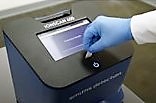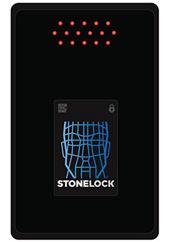The analysts found that the key drivers fuelling this market's growth include emerging superior benefits of palm vein scanners over other biometric technologies, increased need to secure confidential information and data for organisations, surging adoption of biometric identification systems in BFSI, healthcare, and commercial sectors. Furthermore, expanding government support in Europe for internal biometric techniques owing to GDPR compliance and growing partnerships and collaborations between vendors in the ecosystem is boosting market proliferation.
The software and services segment of the palm vein scanner market, by product, is estimated to register the highest CAGR during the forecast period. The increasing availability and improving compatibility of palm vein authentication biometric software and SDK for a wide range of biometric devices has led to their aggressive demand globally. Moreover, several organisations and institutions are insisting on setting up multimodal biometric systems for their offices and secured premises. Additionally, improving cloud infrastructure has made it possible to manage and control users' personal data from portable devices, including smartphones and tablets. All these factors are expected to drive the growth of the software & services segment globally, according to the research.
The access control and biometric identification segment of the palm vein scanner market, by application, is projected to register the highest CAGR during the forecast period. Demand for and integration of palm vein scanners into the access control systems used in commercial office buildings, government institutions, and education premises have fuelled the palm vein scanner market growth over recent years. Further, the increase in the adoption of contactless palm vein access control systems is expected to contribute to the market growth of access control and biometric identification systems based on palm vein biometric technology.
APAC is expected to hold the largest share of the palm vein scanner market in 2025. The region is home to some of the early pioneers of palm vein and finger vein authentication technologies. Also, it houses several other biometric manufacturers in countries such as China and Japan. The commercial and BFSI sectors in the region have readily adopted palm vein biometric systems for various purposes and applications in past years. Governments in countries such as Singapore, India, China, and Japan have increasingly adopted highly advanced biometric systems for different purposes, including citizenship enrollment and passport enrollment. All these developments are expected to aid in the continuous growth of the palm vein scanner market in APAC.
Fujitsu, Hitachi, NEC, Biosec, Recogtech, Idlink, Eportation, Mofiria, Bioenable and Dakar are some of the key players named by the research as being active in the global palm vein scanner market. These players are increasingly undertaking strategies such as product launches and development, partnerships, agreements, contracts, and collaborations to increase their market share.














